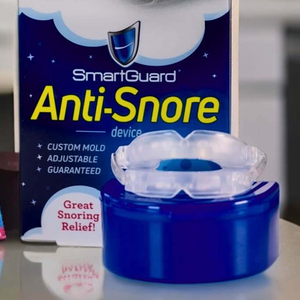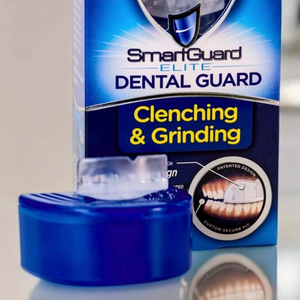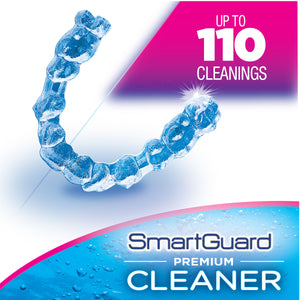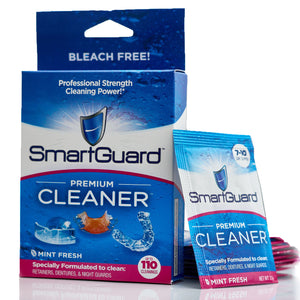Aug 04, 2025
DRUG-INDUCED SLEEP VS NATURAL SLEEP
Sleeping pills can be helpful in managing a stressful life; however, do they carry any risk? Lucky is the person who sleeps well without any sleep aid, but is natural sleep as deep and as therapeutic as sleep that is drug-induced? This article answers the question as to which type of sleep is more healthful. Do you think they are the same in quality and restorative power?
TOP OVER-THE-COUNTER (OTC) SLEEP AIDS
These are widely available and commonly recommended by pharmacists:
|
Brand |
Key Ingredient(s) |
Notes |
|
Unisom |
Diphenhydramine or Doxylamine |
#1 pharmacist-recommended OTC sleep aid |
|
Natrol |
Melatonin (5–10 mg) |
Fast-dissolve tablets, drug-free |
|
ZzzQuil |
Diphenhydramine HCl |
From the makers of NyQuil |
|
Tylenol PM |
Diphenhydramine + Acetaminophen |
Combines pain relief with sleep aid |
|
Olly Sleep Gummies |
Melatonin + L-Theanine + Botanicals |
Popular natural blend |
POPULAR NATURAL SLEEP AIDS
These are often preferred for being non-habit forming:
-
Melatonin: Regulates sleep-wake cycles; ideal for jet lag or shift work
-
Magnesium: Supports relaxation and muscle function
-
Chamomile: Often consumed as tea; calming effects
-
Valerian Root: Herbal remedy with sedative properties
-
L-Theanine: Found in green tea; promotes calm without drowsiness
TOP PRESCRIPTION SLEEP AIDS
These are used for more persistent insomnia and require medical supervision:
-
Zolpidem (Ambien): Short-term use for sleep initiation
-
Eszopiclone (Lunesta): Helps with both falling and staying asleep
-
Temazepam (Restoril): Benzodiazepine for sleep maintenance
-
Ramelteon (Rozerem): Melatonin receptor agonist
-
Trazodone: Antidepressant often prescribed off-label for sleep
If you're considering a sleep aid, it's smart to match the product to your specific sleep issue—whether it's trouble falling asleep, staying asleep, or waking too early.
There’s a meaningful difference between drug-induced sleep and natural sleep, both in terms of brain activity and restorative value.
HOW SLEEP ARCHITECTURE IS AFFECTED
Natural sleep follows a structured cycle of NREM and REM stages:
-
NREM Stage 3 (deep sleep): Crucial for physical restoration and immune function
-
REM sleep: Vital for memory consolidation and emotional regulation
Drug-induced sleep, especially from sedatives like benzodiazepines or antihistamines, often:
-
Suppresses REM sleep, reducing emotional and cognitive recovery
-
Reduces deep NREM sleep, which can leave you feeling groggy or unrested
-
Alters normal brain wave patterns, leading to less dynamic and restorative sleep
DURATION VS QUALITY
-
Drug-induced sleep may increase total sleep time, but it’s often less refreshing
-
Natural sleep tends to balance duration with quality, leaving you more alert and mentally sharp upon waking.
DEPENDENCY AND TOLERANCE
-
Regular use of sleep medications can lead to tolerance, requiring higher doses over time.
-
Dependency may develop, making it harder to sleep without the drug.
-
Natural sleep doesn’t carry these risks and allows your body to regulate its own rhythms.
LONG-TERM HEALTH IMPACTS
Chronic use of sleep aids may contribute to the following:
-
Impaired memory and emotional regulation due to REM suppression
-
Increased risk of metabolic issues, like insulin resistance and weight gain
-
Potential for next-day drowsiness or cognitive fog, especially with longer-acting drugs
So while sleep aids can be helpful short-term—especially for acute insomnia or jet lag—they don’t replicate the full complexity of natural sleep. If you're exploring ways to improve sleep quality, you can build a plan that supports natural, restorative sleep. Let’s dive into the strategy of circadian alignment.
WHAT IS CIRCADIAN ALIGNMENT?
Your circadian rhythm is a 24-hour biological cycle regulated by the suprachiasmatic nucleus (SCN) in your brain. It responds primarily to light exposure, influencing as follows:
-
Melatonin production (sleep hormone)
-
Cortisol levels (alertness hormone)
-
Body temperature and digestion
When your sleep schedule aligns with this rhythm, your body knows when to wind down and when to wake up—naturally and efficiently.
BENEFITS OF CIRCADIAN ALIGNMENT FOR SLEEP QUALITY
|
Benefit |
How It Helps You Sleep Better |
|
Faster Sleep Onset |
Your body releases melatonin at the right time |
|
Deeper Sleep Stages |
Promotes restorative NREM and REM sleep cycles |
|
Fewer Nighttime Awakenings |
Reduces sleep fragmentation and boosts continuity |
|
Refreshed Mornings |
Cortisol peaks naturally to help you wake up alert |
|
Better Cognitive Function |
Enhances memory, focus, and emotional regulation |
HOW TO REALIGN YOUR CIRCADIAN RHYTHM
Here are science-backed strategies to support alignment:
-
Consistent Sleep Schedule: Go to bed and wake up at the same time daily—even on weekends.
-
Morning Light Exposure: Get 20–30 minutes of natural sunlight within an hour of waking.
-
Evening Wind-Down Routine: Dim lights, avoid screens, and relax before bed
-
Limit Caffeine & Alcohol: Especially in the afternoon and evening
-
Meal Timing: Finish your last major meal at least 3 hours before bedtime
Circadian alignment isn’t just about sleep—it’s a cornerstone of metabolic health, immune function, and emotional resilience. You can build a personalized routine to support your rhythm.
When it comes to safety, the best sleeping pills are those that balance effectiveness with low risk of dependency, side effects, and next-day grogginess. Here's a breakdown of some of the safest options across different categories:
SAFEST DRUG-FREE SLEEP AIDS
These are generally considered safest for long-term use:
|
Product |
Key Ingredients |
Safety Notes |
|
Nature’s Bounty Sleep3 |
Melatonin, L-Theanine, Herbal Blend |
Triple-action, time-release formula |
|
NoctoPlex |
Melatonin, Valerian Root, L-Theanine, Zinc |
Non-habit forming, multi-targeted |
|
Olly Sleep Gummies |
Melatonin, Botanicals |
Popular and gentle |
These are non-habit forming, support circadian rhythm, and have minimal side effects.
SAFEST PRESCRIPTION SLEEP MEDICATIONS
These are typically used under medical supervision and have lower risk profiles:
|
Medication |
Type |
Safety Highlights |
|
Ramelteon (Rozerem) |
Melatonin receptor agonist |
No risk of dependence |
|
Doxepin (Silenor) |
Low-dose antidepressant |
Safe for long-term use |
|
Suvorexant (Belsomra) |
Orexin receptor antagonist |
Targets wakefulness, low abuse risk |
These are FDA-approved for insomnia and considered safer than traditional sedatives like benzodiazepines.
POPULAR OTC OPTIONS WITH CAUTION
These are widely used but should be taken only occasionally:
|
Product |
Active Ingredient |
Notes |
|
Unisom SleepTabs |
Doxylamine Succinate |
Effective, but may cause grogginess |
|
Simply Sleep |
Diphenhydramine HCl |
Non-habit forming, but tolerance builds |
|
Sominex |
Diphenhydramine HCl |
Safe short-term use |
OTC antihistamines can be sedating but may impair sleep architecture if used regularly.
If you're looking for something safe and effective, melatonin-based supplements or prescription options like Ramelteon are often the best starting point.
Some sleeping pills carry significantly higher risks due to their potential for dependency, overdose, and adverse effects on brain function.
HIGH-RISK PRESCRIPTION SLEEP MEDICATIONS
|
Drug Name |
Type |
Key Risks |
|
Barbiturates |
Sedative-hypnotics |
High overdose risk, respiratory depression |
|
Benzodiazepines |
Anti-anxiety sedatives |
Strong dependency potential, cognitive decline |
|
Zolpidem (Ambien) |
Non-benzo hypnotic |
Sleepwalking, memory issues, next-day impairment |
|
Eszopiclone (Lunesta) |
Non-benzo hypnotic |
Tolerance, rebound insomnia, impaired alertness |
|
Temazepam (Restoril) |
Benzodiazepine |
Habit-forming, withdrawal symptoms |
These drugs can be effective short-term, but long-term use increases the risk of addiction, accidental overdose, and altered sleep architecture.







